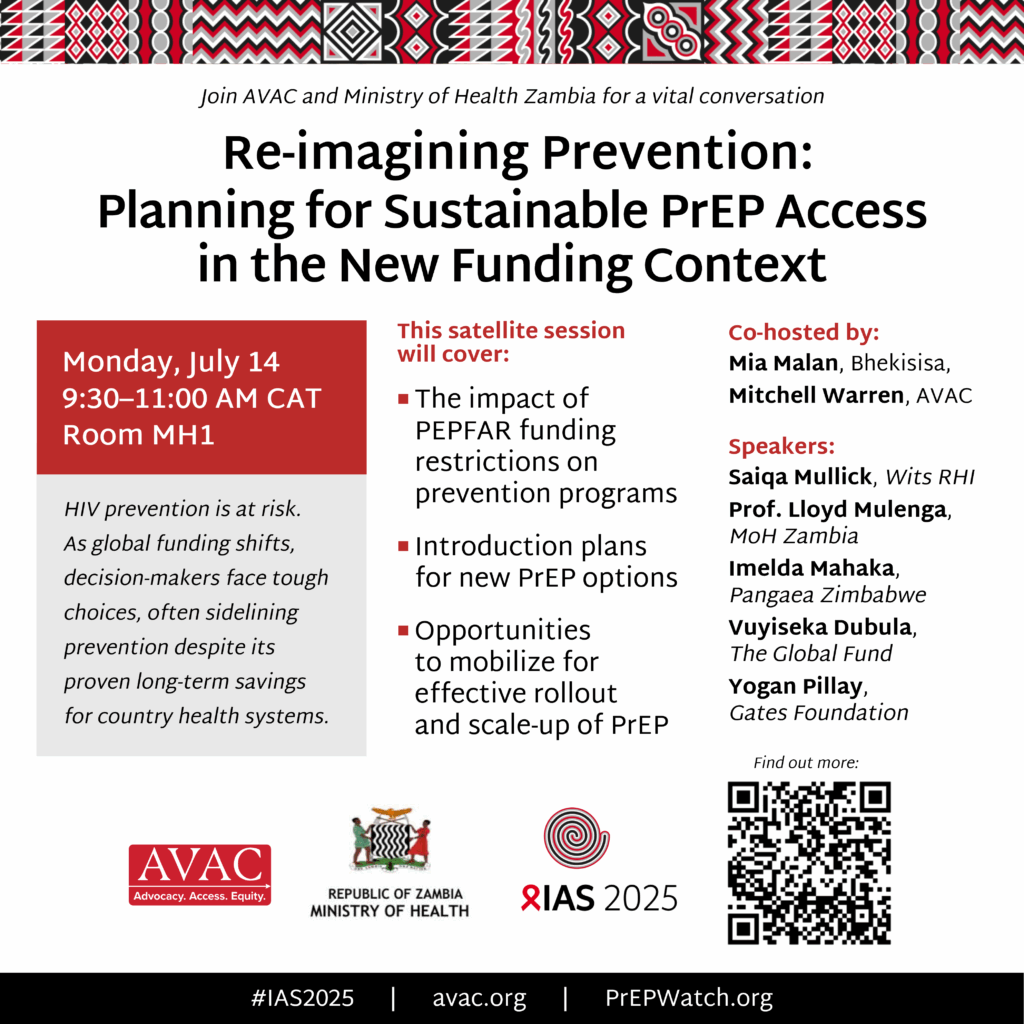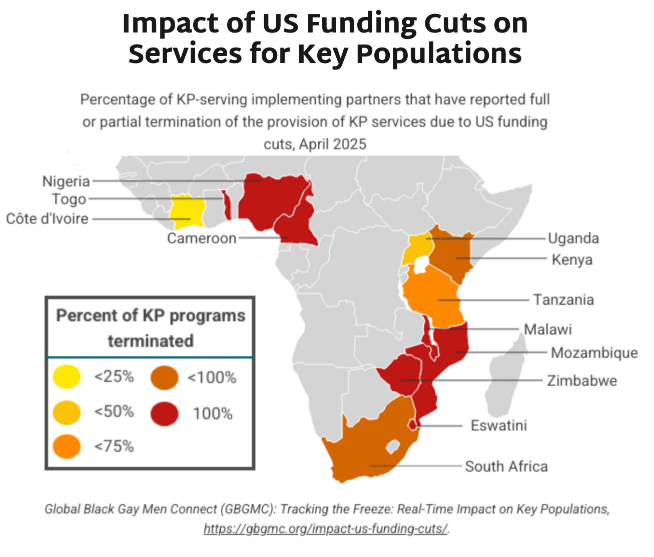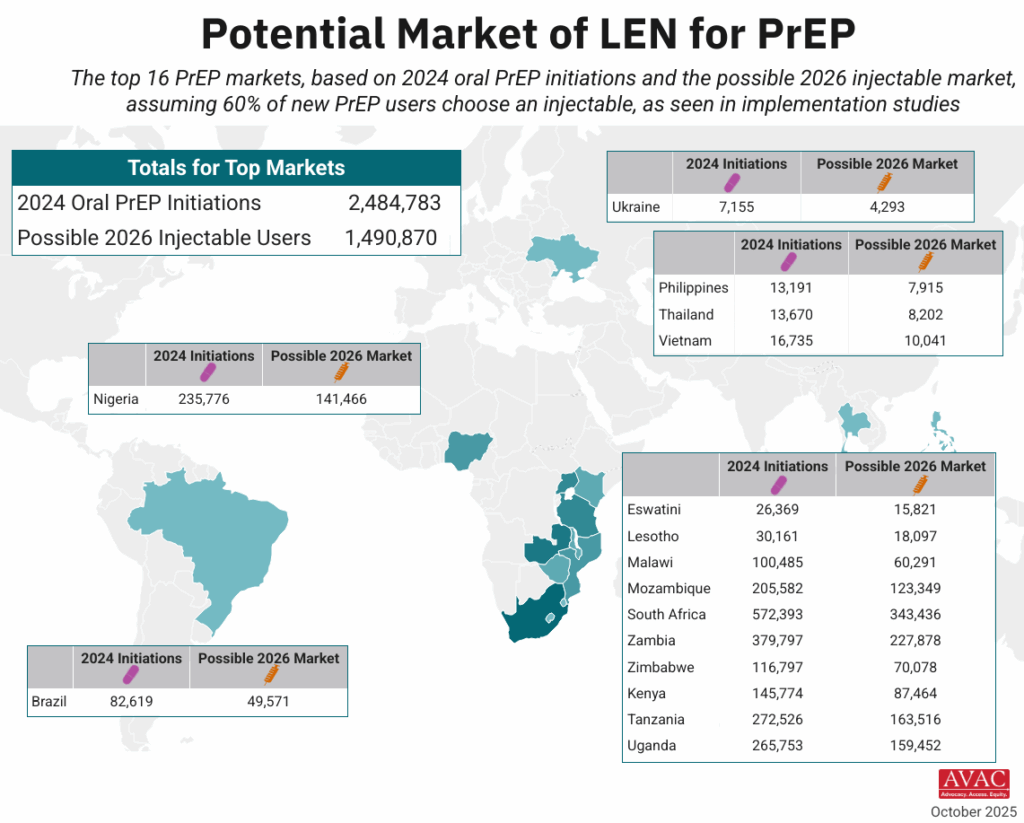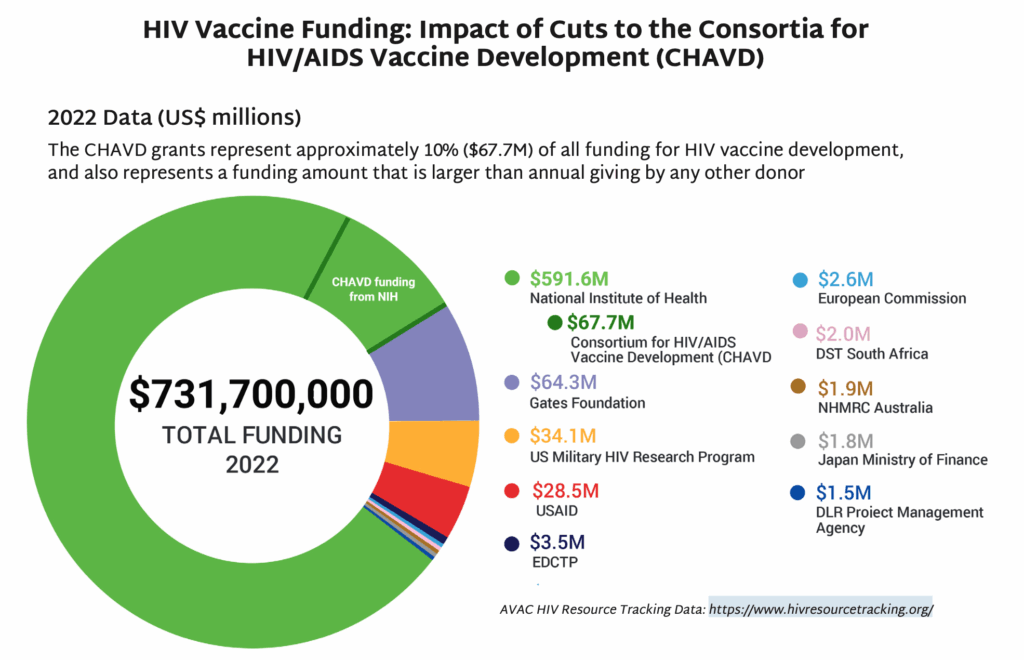New York, NY, September 24, 2025 — AVAC welcomes parallel announcements from the Gates Foundation and Unitaid on strategic investments to accelerate the development of, access to and price reduction for generic versions of injectable lenacapavir (LEN), the highly effective six-monthly injection for HIV PrEP.
“These investments are a vitally important step in translating the remarkable science of LEN into public health impact,” said Mitchell Warren, executive director of AVAC. “With these agreements, injectable LEN for PrEP gets closer to the price of daily oral PrEP, $40 per person per year, for low and middle-income national governments. This means national programs in many, but not all, countries can begin planning for 2027, at which time ongoing oral PrEP and LEN use will be available at similar prices, meaning many countries will be truly able to offer people who need prevention choice when it comes to the PrEP method that best meets their needs. This could be a transformational moment in HIV prevention if political will, coordination, and further procurement investment meet this moment to deliver LEN with speed, scale and equity to all communities and populations who need and want prevention options. Many questions remain, but in this current environment, we need to seize opportunities and good news when we can.”
These new commitments to accelerate access to generic versions of LEN come on the heels of the Global Fund and PEPFAR re-committing to their December 2024 announcement of reaching two million people with LEN for PrEP within three years, with drug supplies coming from the originator company, Gilead Sciences. Among the outstanding questions from these new commitments is the price of the required oral loading dose for LEN, which is needed to achieve high efficacy. While the cost of ongoing use of LEN for PrEP would be similar to the cost of a year of daily oral PrEP, anyone initiating or restarting LEN for PrEP needs an oral loading dose of LEN. This oral loading dose is not included in the $40 price mentioned in the Gates and Unitaid deals and will add between $15-$17 in the first year of anyone initiating or re-starting LEN, and supply chains and purchasers need to include this extra cost in their calculations.
“The ‘two million in three years’ ambition from Global Fund and PEPFAR must be seen as a floor and not a ceiling,” said Warren. “The global PrEP data that AVAC tracks show a more ambitious goal, getting LEN to at least 1.5 million next year alone, is achievable and necessary. Ultimately, LEN must reach more than five million people per year to have real impact, build a sustainable market, and drive prices down even further. This means we must act faster and think bigger.”
AVAC calls on all stakeholders to do their part. Next steps require coordinated action and further investment to ensure the creation of a viable and sustained market.
“This is the moment to ensure that LEN for PrEP lives up to its full potential, and to hold each other accountable for what must happen next,” said Wawira Nyagah, AVAC’s director of product introduction & access. “Demand creation and program design for LEN must be fully resourced, evidence-based and community-centered. Volume commitments, manufacturing, and supply chains must be sustained and stable. But to make a difference at a global level, the HIV response must go beyond these essential, but minimum, steps with a bold vision to accelerate the entry of generics and trigger a virtuous cycle of price drops, which further drive-up PrEP use.”
LEN, developed by Gilead Sciences, is a twice-yearly injectable PrEP option that showed nearly complete protection against HIV in the landmark PURPOSE 1 and 2 trials. Science Magazine named LEN the “Breakthrough of the Year” in 2024, a recognition that reflects its enormous potential. But fulfilling this potential is far from certain, and all stakeholders have critical work to do, as detailed in AVAC’s 2024 publication, Gears of Lenacapavir for PrEP Rollout.
AVAC’s publication, Now What with Injectable LEN for PrEP How to Translate Ambition into Accelerated Delivery and Impact, includes forecasts demonstrating that instead of 2 million people in three years, the world could reach at least 1.5 million people in just one year. Gilead has confirmed that they can manufacture enough injectable LEN to reach in excess of 5 million LEN users over the next three years. These numbers suggest what is possible and this is no time to think small.
“To achieve true impact against HIV requires early commitments from additional donors to procure large volumes of LEN, which will enable a bigger rollout, exceeding targets, and reaching more people who need PrEP in more places, which in turn secures the kind of market scale that accelerates further prices reductions,” said Nyagah. “It requires country regulators, ministries of health, implementers, advocates and communities where HIV prevention is needed to prepare with policies and programs that will succeed in connecting people with products that work in the context of their lives. The field has learned these lessons before. Technology alone gets you nowhere; it’s delivering the product with speed, scale and equity that gets the job done.”
###
About AVAC
AVAC is an international non-profit organization that provides an independent voice and leverages global partnerships to accelerate ethical development and equitable delivery of effective HIV prevention options, as part of a comprehensive and integrated pathway to global health equity. Follow AVAC on Bluesky and Instagram. Find more at www.avac.org and www.prepwatch.org.






